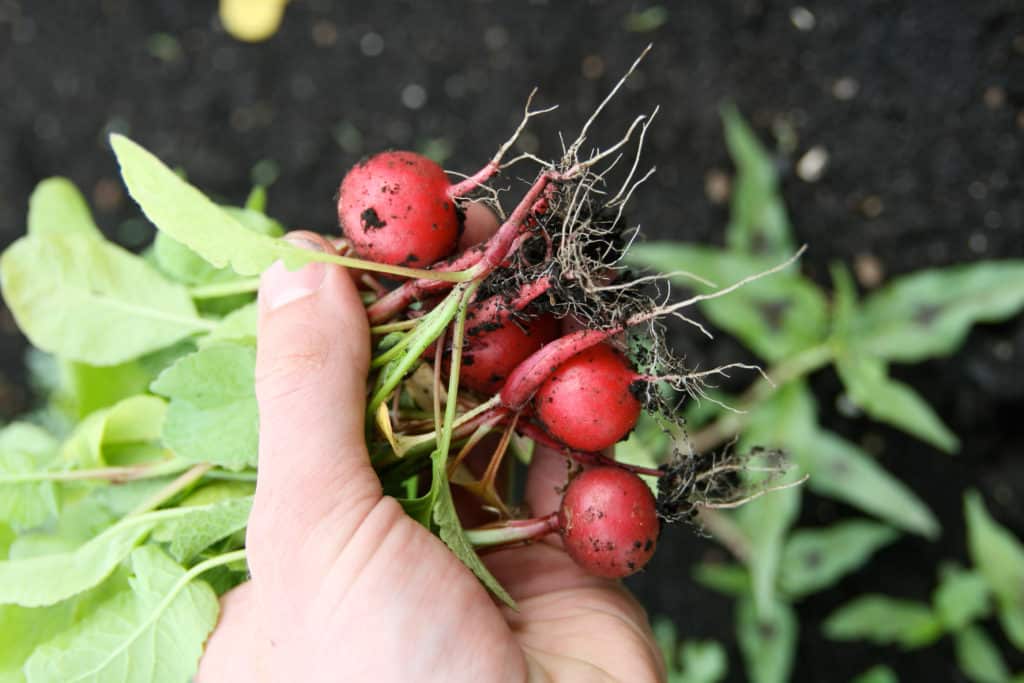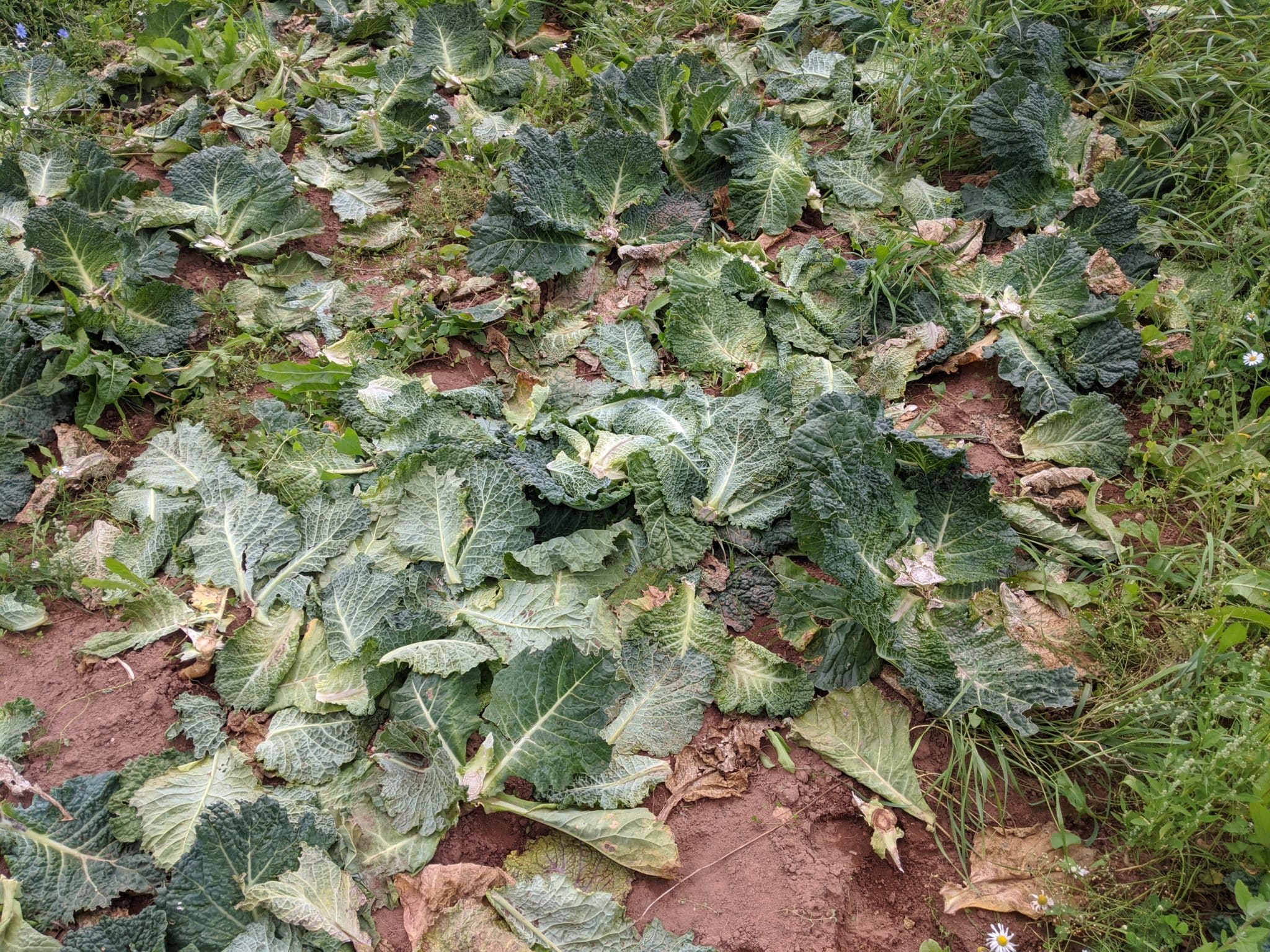Digging around for information on food waste can reveal some nasty nuggets. Food loss and waste accounts for eight per cent of global greenhouse gas emissions, which means if it were a country only China and the US would be responsible for more greenhouse gases.
UK householders alone throw away 4.5 million (m) tonnes of edible food a year, according to Wrap, a charity specialising in waste. Another 0.8m tonnes is wasted by restaurants, pubs and cafés, while food manufacturers and retailers chuck away 0.8 and 0.3m tonnes respectively. In the context of the climate crisis, a cost-of-living crunch, and world hunger, it’s a scandal.
But these statistics are not the full story: they don’t include food waste on farms.
“It’s incredibly expensive to research such a massive and diverse industry [like agriculture],” explains William McManus from Wrap. “We don’t know whether levels are going up or down.”
Read the news in recent weeks and you’d be inclined to think they’re going up. The harsh weather, dearth of pickers, and whims of the supermarkets (as well as their own waste targets) have all been linked with rising levels of waste. So, how much food waste is produced on farms and what can be done about it?
A report produced by WWF and Tesco last year estimated that, globally, 15 per cent of the food that’s produced never makes it off farms. The most recent figure for the UK, calculated by Wrap in 2019, put on-farm food waste at 1.6m tonnes a year – or 3.2 per cent of all food harvested. Another 2m tonnes was ‘surplus’, and went for redistribution, animal feed or to become bio-based materials.
The shocking findings are another sign that our food system is “broken”, explains Lilly Da Gamma, WWF’s food waste expert. She blames the inflexibility of the current food system to deal with gluts (farmers often look for alternative markets but these are not always readily accessible), as well as consumer expectations of what food should look like. “Huge quantities of fresh produce like fruits and vegetables simply don’t make the grade and are left [in the] field,” she explains.

A recent survey by British Berry Growers estimated that annual food waste almost doubled last year compared to 2020, and would double again this year. Its members’ losses were reportedly a direct consequence of the restricted supply of labour. Barfoots, which sells a range of fresh produce in the UK and overseas, had a “good deal of waste” last year as the lack of labour saw crops left in the field, says boss Julian Marks.
The demands of the supermarkets can also increase waste. Research by Feedback, a charity, found that rejection based on aesthetic imperfection, unfair trading practices, and overproduction were the three main causes of on-farm food waste. Its report includes a quote from Guy Singh-Watson at organic veg box company Riverford, who said that when he sold to the supermarkets he’d grow about a third more than needed “just to make sure that the supermarket buyer didn’t have a tantrum if you ran short.”
That report was four years ago. Retailers have in recent years relaxed their standards, according to some growers we spoke to (and many supermarkets have also moved to introduce ‘wonky veg’ lines). But the specifications remain pretty strict. “Our members have an innate financial incentive to avoid food waste,” says an NFU spokesperson, but “given the plethora of external influences such as retailers and harvest conditions, it can be difficult for them to avoid.”
No country in the world currently has robust data on food waste on farms. Martin Bowman, Feedback
There have also been reports that the supermarkets’ own targets to reduce in-store food waste have created more wastage on farms. Berry producers told trade website Fruitnet recently that stores were controlling fresh produce levels very tightly, which was actually inhibiting sales and increasing on-farm waste “massively”.
But accurate figures are hard to come by. “No country in the world currently has robust data on food waste on farms,” says Martin Bowman from Feedback. Da Gamma at WWF is currently working with farmers and businesses on an up-to-date estimate, and says: “A vital first step is working out the size of the problem.”
Indeed, research by Wrap shows that UK farmers could increase profits by 20 per cent by minimising food surplus and waste.
Huge quantities of fresh produce like fruits and vegetables simply don’t make the grade and are left [in the] field. Lilly Da Gamma, food waste expert at WWF
The finding came from work with Ribena’s blackcurrant growers, including Rosie Begg from Gorgate Farm in Norfolk. “If you’d asked me before the project I’d have said our waste was really minimal,” she explained in a recent video, “so we were all quite surprised to see that we were leaving a lot more in the field than we previously thought.”
Measuring food waste in this way can have massive benefits. “It’s certainly opened our eyes to applying more science to the art of forecasting,” explains Marks at Barfoots, which has reduced edible waste by almost 6,000 tonnes. The figures are reported as part of Wrap’s food waste reduction roadmap – a voluntary initiative to which only 50 farms have signed up.
“Many farms are afraid of reporting food waste due to fear of reprisal from their buyers if they seen to be criticising [them],” says Bowman. Feedback has launched a petition to push for mandatory reporting of food waste from all food businesses, after government proposals to tackle the issue also ignored on-farm waste.
“I don’t think Defra has much understanding of primary production losses,” says Julian Parfitt, of sustainability consultancy firm Anthesis, who has produced national food waste statistics for Wrap and worked with Tesco (which has reported its food waste data for almost a decade).
The NFU says reporting is too costly. But the likes of Bowman say farm waste can no longer be ignored. Without reporting, there is a risk that farmers will continue to suffer the costs of waste, he explains: “Their exclusion [from new reporting laws] will create perverse risks of more food waste being pushed onto farmers via unfair trading practices.”
This investigation was originally published in the Autumn 2022 print edition of Wicked Leeks. You can read the full issue online now.









0 Comments